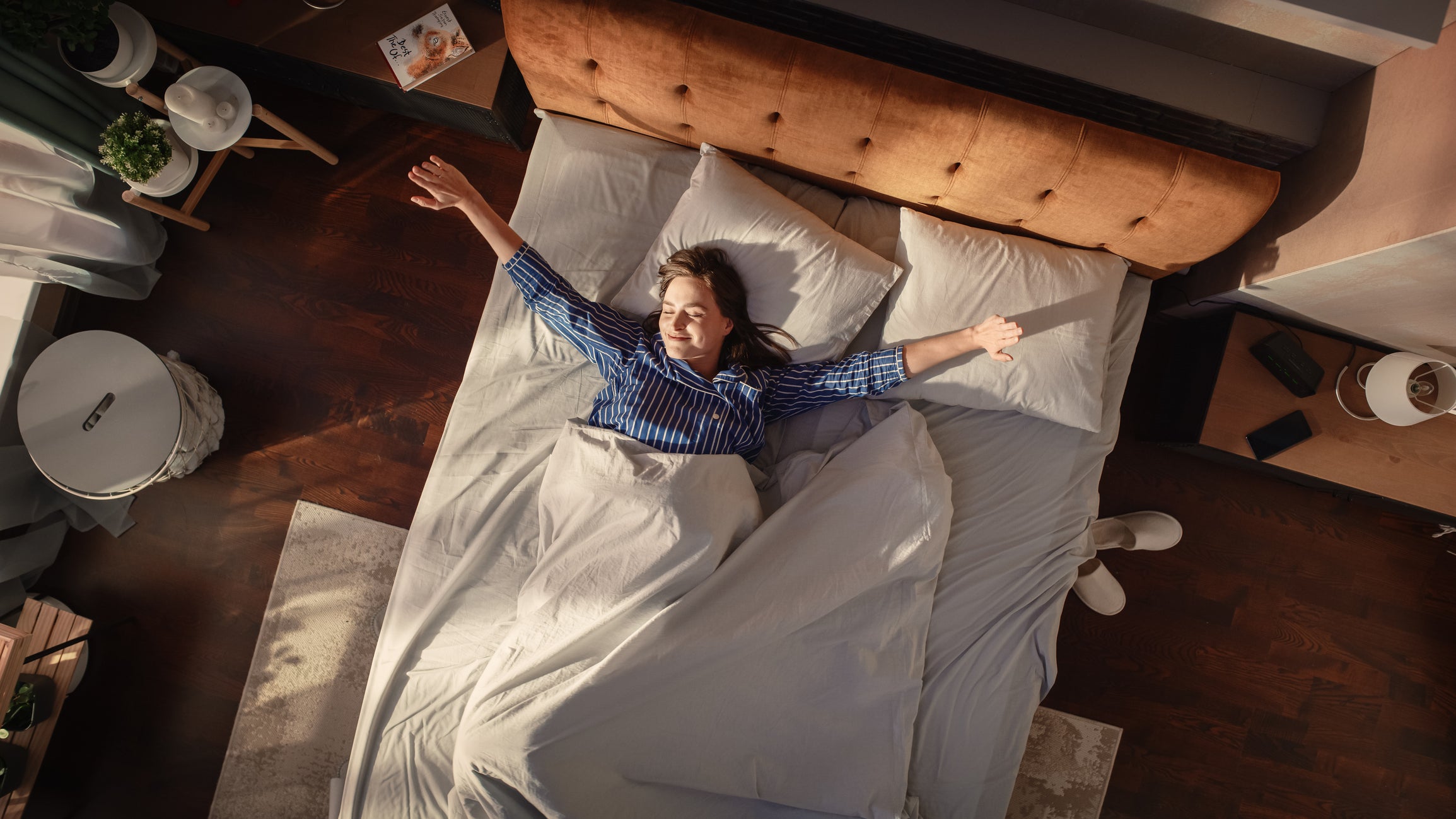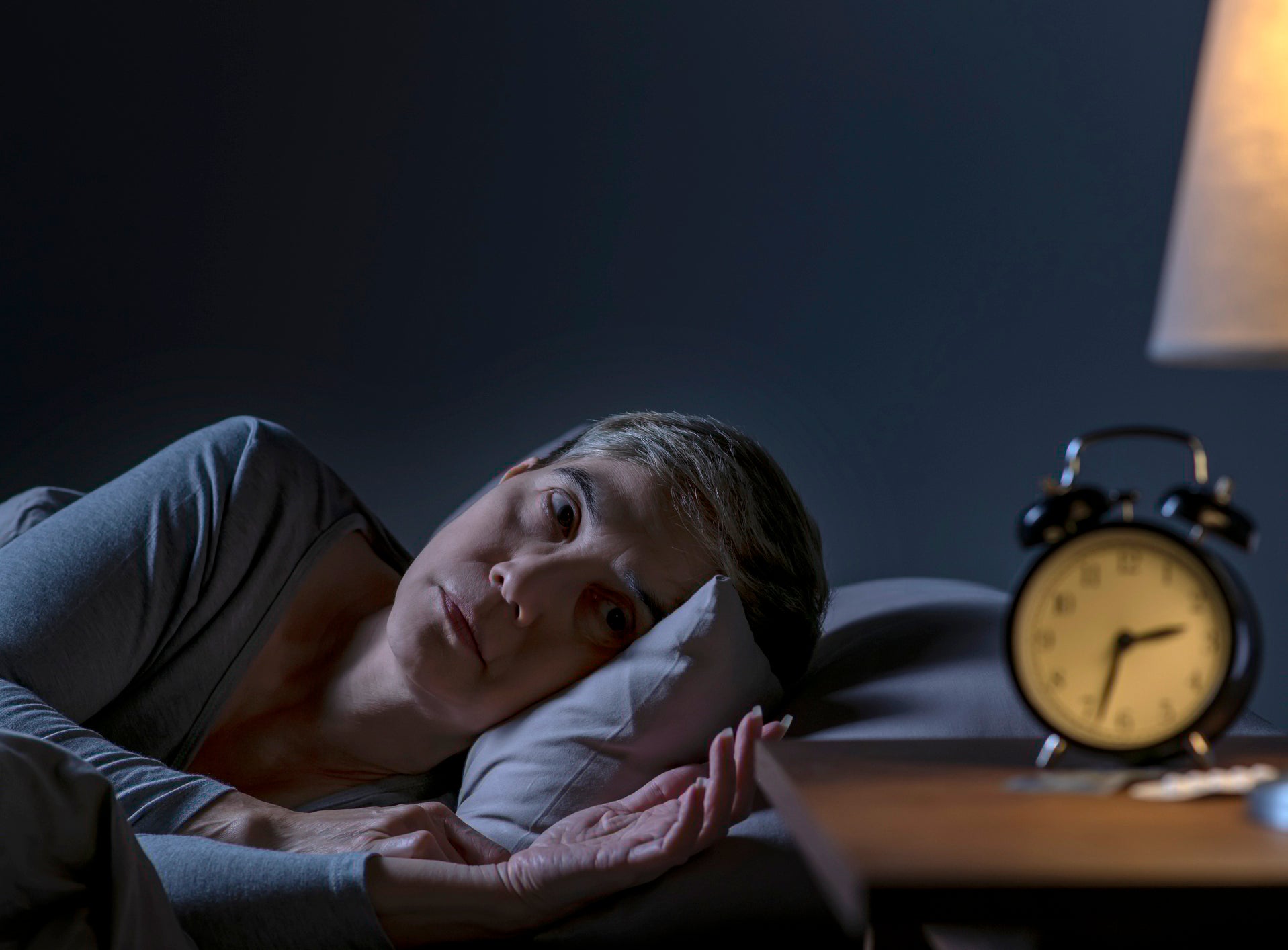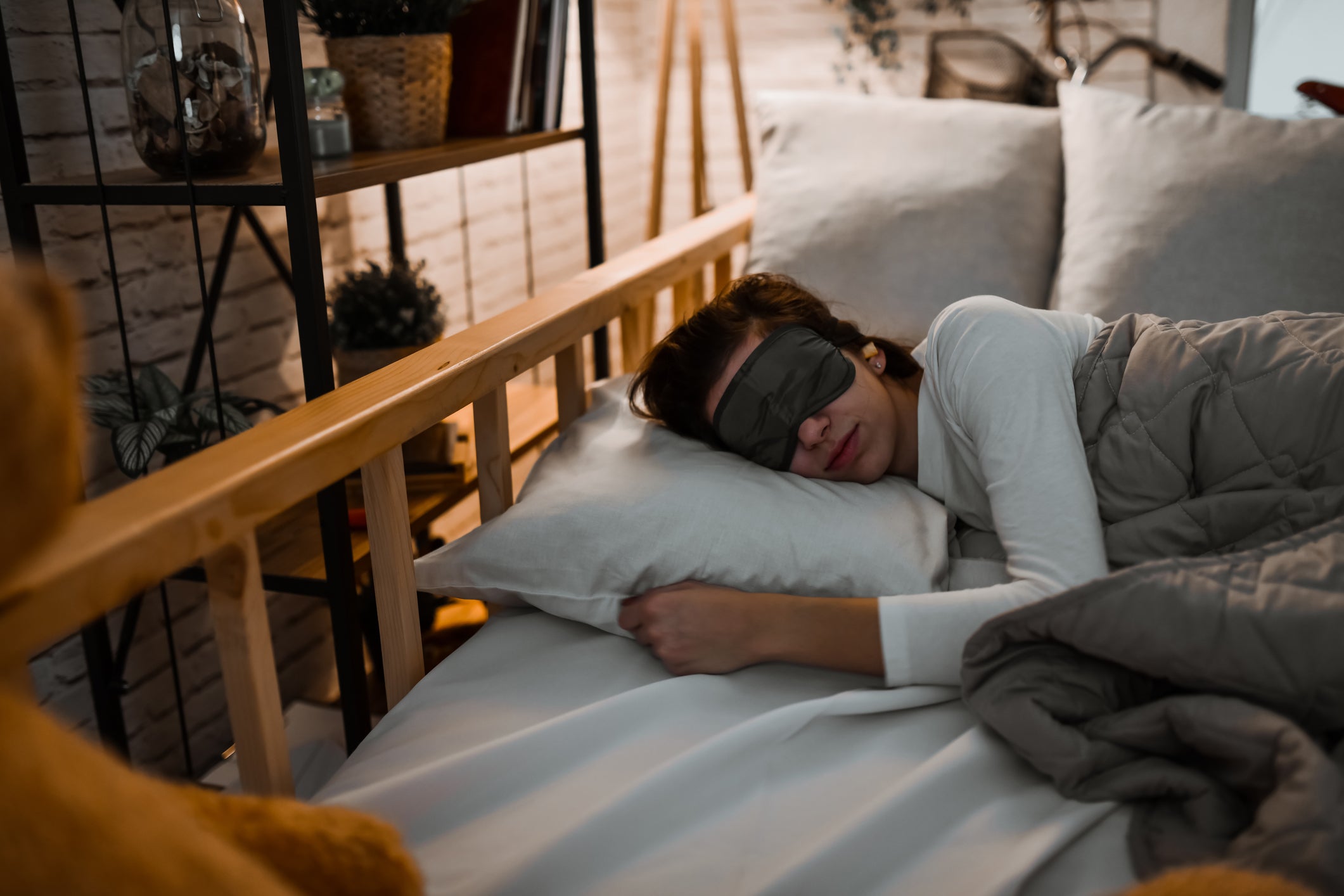Too hot to sleep? No sweat! In summer your body needs a different kind of rest
With long days comes sleepless nights and even one less hour of slumber can have an effect on our wellbeing. Here, sleep expert, Miranda Levy, delves into the science and looks at what a summer sleep drought is really doing to your body...

A sleepless summer night is its own special kind of torture. The light, bright evenings and early mornings you craved in the winter suddenly exist only to taunt you. That’s before you mention the heat, causing you to toss and turn until your sheets resemble a stick of chewed Wrigley’s as you incessantly turn the pillow over, desperate to find a cool spot.
And it’s not just the heat either, light from longer days can also affect our ability to sleep. American clinical psychologist Dr Michael Breus describes the summer mood as “reverse SAD [seasonal affective disorder]”. Our circadian rhythms are regulated by a part of the brain called the suprachiasmatic nucleus, or SCN, located at the intersection of our optic nerves: light and darkness signal the processes that wake us up and make us sleepy.
“The early sunrises and late sunsets mean the body gets less of the darkness it needs to make melatonin, the hormone which promotes sleep,” says Dr Breus. This is not a warning to keep out of the fresh air – which in itself is important for sleep – but might be one of the reasons it can be hard to drop off after a day out in the sun.
The good news is that our bodies are wired to need less sleep in summer, according to research from a German study published last year. According to their findings, participants experienced seasonal variations in REM sleep, directly linked to our circadian rhythm, sleeping an hour longer in December than in June. Our REM sleep – the most “active” period during which we dream – was also shown to be 30 minutes longer in the winter than during the summer.
However, as anyone who has missed even one night’s sleep knows, the struggle of that next day where you seek out carbs and the smallest technology hitch becomes a weepy disaster.
“Our body clock was set 20,000 years ago, and nothing here has really changed,” says Dr Sophie Bostock, a sleep scientist and behavioural psychologist. “Our brains evolved to see sleep loss as a warning sign, so we tend to respond to short sleep by going into high alert.

“As the brain channels its energy towards self-defence, we divert resources away from the more rational parts of our decision-making machinery. We get more impulsive, make bad decisions and have less control over our emotions.”
We now know that sleep and mental health are inextricably linked, says Dr Bostock. “Poor sleepers are at more than twice the risk of future anxiety and depression than good sleepers.”
Various studies have also shown how longer-term sleeplessness raises our risk of physical conditions including obesity, type 2 diabetes and heart problems. Research shows that losing just one hour of sleep can lead to eating approximately 200 more calories the next day. Exercise is affected too with levels of endurance dipping as well as cognitive abilities with concentration levels challenged.
There are two optimal nap durations. A quick 20-minute snooze that energises you without post-nap grogginess, or a nap lasting 90 minutes, which is the length of a full sleep cycle and has also restorative benefits
As the body begins secreting the sleep-promoting hormone around 9pm, light exposure can moderate your circadian rhythm a little bit, but to function at an optimal level requires consistent sleep and waking. Disruption of even just an hour can knock your sleep out of whack – with a cumulative effect seriously damaging health and wellbeing. All of which doesn’t bode well when you are facing a summer sleep drought. So how to survive it?
Learn from the hot and light countries
Nordic countries go for weeks in the summer without seeing the dark. “Many Norwegians create darkness themselves – with eye masks, covered window glass, and blackout curtains,” says Norwegian sleep writer, Terra Lynn.
“By simulating darkness, we can prompt these natural processes. Many Norwegians also make an effort to stay on a consistent sleep schedule despite the constant light during the summer months – especially waking up at, or close to, the same time every day.”
Note also the Scandinavian sleep method of sleeping with separate duvets, keeping you apart from your sweaty partner. The Australians also have long experience of sweltering summers. According to the website Healthy WA, it can help to apply cold compresses to your armpits, wrists and groin. The site also recommends putting a tray full of ice cubes in front of a fan in your bedroom.
Follow your usual ‘sleep hygiene’ rules
These include consistent bedtimes and wake times, a dark (use a silk sleep mask which will cool as well as darken the eyes) and quiet room, and no coffee after lunchtime.

And while that glass of rose in the garden is tempting, and may even help you to drop off, do try not to overindulge. “Alcohol worsens your quality of sleep,” says Dr Bostock. “It affects your circadian rhythm, and blocks REM sleep, and will make it more likely you’ll wake up during the night as your body metabolises the booze.”
…But do keep drinking lots of other fluids
“Dehydration interferes with sleep because it messes up vasopressin – the hormone which manages fluid levels in the body,” says Dr Bostock. “It’s hard to recommend an ideal fluid intake, because it varies from person to person,” but she suggests stopping “an hour before bed, unless you want to be up and down to the loo all night.”
The NHS Eatwell Guide recommends that people should aim to drink six to eight cups or glasses of fluid a day. Water, low-fat milk and sugar-free drinks, including tea and coffee, all count.
Embrace the siesta
Unless you suffer from chronic insomnia – in which case naps are generally not a good idea – taking a short siesta can help with daytime tiredness. “There are two optimal nap durations,” says Dr Breus. “A quick 20-minute snooze that energises you without post-nap grogginess, or a nap lasting 90 minutes, which is the length of a full sleep cycle and has also restorative benefits.”
The ideal time for a nap is approximately seven hours after you wake for the day, and fewer than six hours before bed.
Master the ideal room temperature
This is the same all year round: between 16 to 19C. “On sunny days, keep the temperature down by leaving your bedroom curtains closed during the day. If you are lucky enough to have an air-conditioning unit or top-notch fan, keep the window closed at night to keep the humid air out.
It’s hard to recommend an ideal fluid intake, because it varies from person to person. Try to stop an hour before bed, unless you want to be up and down to the loo all night
“Otherwise,” Dr Bostock explains, “keep your window open. Even basic fans are a good idea because they help the air to circulate. This prevents the build-up of carbon dioxide – also bad for sleep.”
Stick to this pre-bed routine
Dr Bostock also recommends a warm bath or shower in the late evening. “It’s relaxing, and also increases heat flow to your hands and feet, which cools the internal temperature,” she says. “Cold showers aren’t a great idea, because the shock induces the production of cortisol, which can keep you awake.”
Stick with natural fabrics in your bedding and nightwear: these “wick away sweat”, says Dr Bostock. What about sleeping naked, or without covers at all? “The jury’s out,” she says. “Many people find they need the ‘calming’ effect of touch, and having covers on their body.”
The worst thing you can do is try
Take the heat out of the situation by using a method called CBT-I – or cognitive behavioural therapy for insomnia. This method teaches you the tricks to avoid getting anxious about not sleeping yet again and turning your bedroom into a battleground.
“If you are having a bad night, do your very best not to panic, or ‘catastrophise’,” says Bostock. “Tell yourself you are not a bad sleeper, you are merely having a bad night.
“And it’s true: if you don’t sleep, the world won’t explode. Tomorrow night, you will probably sleep. By taking the stress out of the situation you may feel so relaxed, that you might even drop off.”
Just in time to see that new, lovely, summer dawn.
Miranda Levy is the author of ‘The Insomnia Diaries: How I Learned to Sleep Again’ (Octopus Books)






Join our commenting forum
Join thought-provoking conversations, follow other Independent readers and see their replies
Comments